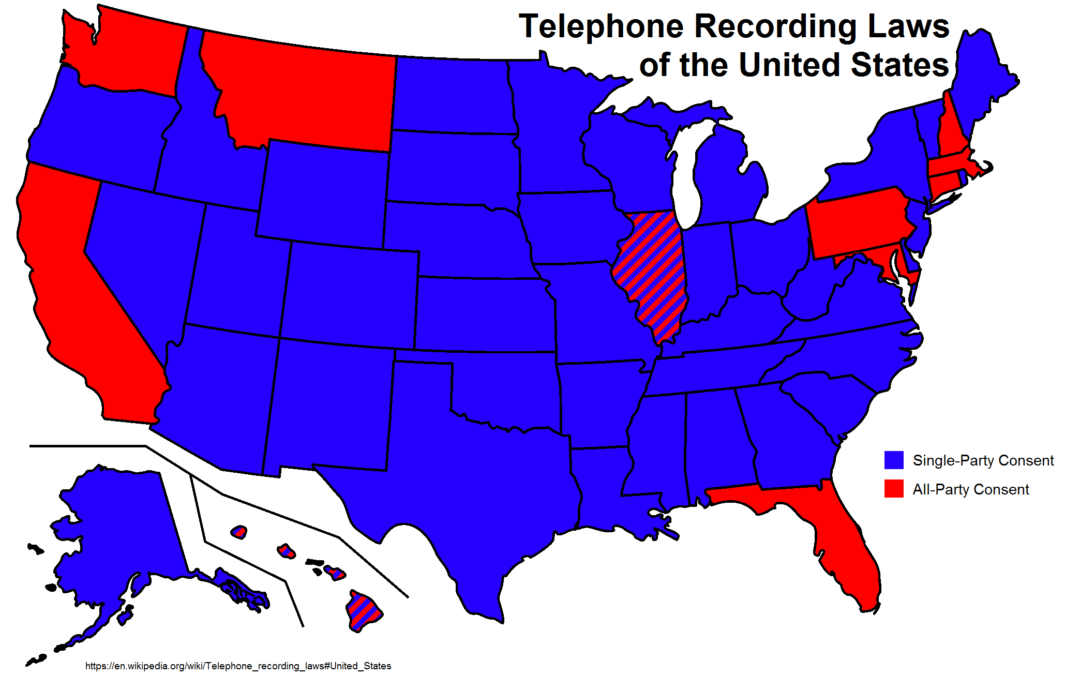Recently, I have spoken with several people seeking legal advice, or clients trying to get a discount or gain some other advantage in their relationship with me, wherein I was told that either the person had recorded their conversation with me, or the person recorded their conversation with somebody else.
I advised them that what they did was illegal under California Penal Code section 632, which makes it unlawful for a person to record another person without their permission on a phone call or in another setting where they have a reasonable expectation of privacy. There is an exception for law enforcement.
With the advent of modern technology, it has become really easy to record telephone conversations. In some states it may be legal to record phone conversations. However, if you speak to someone in California, and you do not get their permission to record the conversation, you could be either charged with a misdemeanor, or felony, for not obtaining their permission first.
As a California attorney, it blows my mind every time somebody admits to me that they illegally recorded a phone call with me without my permission. What do these people expect will happen when they threaten an officer of the court?
With respect to people who seek legal advice from me telling me that they have recorded other people without their permission, the short answer is not only is the recording illegal, but the recording is not admissible for any purpose because it was illegally obtained and it is considered fruit of the poisonous tree.
With modern technology, it is very easy to edit a recording using digital software on a personal computer to make a conversation totally different than what actually occurred, or to edit out certain words, to change the context of a conversation. Therefore, the phone recordings are not reliable without a credible chain of evidence.
A solution to this problem is to inform people that the call may be monitored or recorded for quality of service. This is why almost every company you call has this admonition when you call in to them. They are basically telling you the call is being recorded, and by you continuing to call, you were consenting to being recorded.
On services such as Google voice, or ring central, when you hit the record button, the service will announce that the call is being recorded to prevent any illegal acts.
Therefore, in a nutshell, unless you are law enforcement, or acting on behalf of law enforcement, you should not record telephone conversations, or in person conversations with people in California, without the consent of the other person unless you are law enforcement, or acting on behalf of law enforcement, or you could be charged with the crime. I advise you to look up California Penal Code section 632.
By California Personal injury Lawyer Norman Gregory Fernandez, Esq., March 2019





 Welcome, my name is
Welcome, my name is 






